Can You Burn Essential Oils
Essential oils have gained popularity for their various benefits, from relaxation to mood enhancement.
Discover how to harness these benefits through burning essential oils. We will explore the different methods of burning essential oils, the benefits it can bring, and the safety precautions you need to take.
Learn about whether burning essential oils can be harmful and get a list of popular essential oils that you can start burning today.
Stay tuned to learn more about this aromatic practice!
Key Takeaways:
What Are Essential Oils?
Essential oils, long used in traditional practices such as Ayurveda and Naturopathy, are concentrated liquids derived from plants that capture the plant’s scent and flavor.
These oils have a rich history dating back centuries, with roots in ancient civilizations like Egypt, where they were prized for their healing properties and used in religious ceremonies. The extraction process of essential oils involves various methods such as steam distillation, cold pressing, or solvent extraction, depending on the plant material used.
In traditional medicine, essential oils have been valued for their therapeutic benefits like promoting relaxation, boosting immunity, and aiding digestion. Ayurveda and Naturopathy harness the power of these oils to balance the mind, body, and spirit through their unique healing properties.
Today, essential oils are widely used in aromatherapy, where they are inhaled or diluted for topical application to enhance well-being and improve emotional health. The versatile nature of these oils allows for a wide range of applications, from soothing sore muscles to promoting sleep and reducing stress.
How Are Essential Oils Used?
Essential oils are commonly used in oil burners or diffusers to disperse their aroma into the air or infused in candles for a fragrant ambiance, often employed for aromatherapy purposes.
Oil burners are popular for creating a calming atmosphere in homes or therapeutic spaces, as they allow the oils to slowly evaporate and spread their scent.
On the other hand, candles with cooking essential oils provide a warm and soothing environment, adding a touch of natural fragrance to any room.
Diffusers, whether ultrasonic or nebulizing, are widely used for their efficiency in dispersing oils evenly, filling the air with their healing properties.
Incorporating these methods into regular wellness routines can promote relaxation, reduce stress levels, and enhance overall well-being.
What Are the Benefits of Burning Essential Oils?
Burning essential oils offers a myriad of benefits, from creating a pleasant scent and ambiance to potentially enhancing health and well-being through the therapeutic properties of essential oils.
Aromatherapy
Aromatherapy, utilizing essential oils like lavender and peppermint, has been recognized for its potential to improve mental and physical health through the inhalation or topical application of aromatic essences.
These essential oils are derived from various plants and are known for their therapeutic properties. Lavender, for instance, is celebrated for its calming effects, helping to reduce stress and anxiety levels. Peppermint oil, on the other hand, is often used to alleviate headaches and improve focus and concentration.
One of the core principles of aromatherapy is the belief in the powerful connection between scent and emotions, where inhaling specific aromas can impact mood and well-being. This practice is often used to promote relaxation, boost energy, or even aid in better sleep.
Mood Enhancement
Burning essential oils like rosemary and bergamot can uplift mood and create a positive atmosphere, making them ideal choices for enhancing emotional well-being and relaxation.
Rosemary, with its fresh and herbaceous scent, is known for its stimulating properties that can help improve focus and mental clarity. On the other hand, bergamot’s citrusy and floral aroma is celebrated for its mood-lifting and stress-reducing effects, making it a popular choice for relaxation and stress relief. By incorporating these essential oils into your daily routine through diffusers or massages, you can experience their therapeutic benefits and promote a sense of calm and well-being.
Air Purification
Certain essential oils like eucalyptus and basil possess natural purifying properties that can cleanse the air when burned, promoting a fresher environment and potentially improving respiratory health.
When these essential oils are diffused into the air by burning them, they release antimicrobial properties that can help in eliminating airborne pathogens. Eucalyptus oil, for instance, is known for its ability to act as a decongestant and expectorant, which can be beneficial for those suffering from respiratory issues.
Along with their air-purifying qualities, certain essential oils also have a calming effect on the mind and body, creating a soothing atmosphere that can reduce stress and promote relaxation. When used in conjunction with good ventilation, burning these oils can significantly improve the overall air quality within a space.
What Are the Different Methods of Burning Essential Oils?
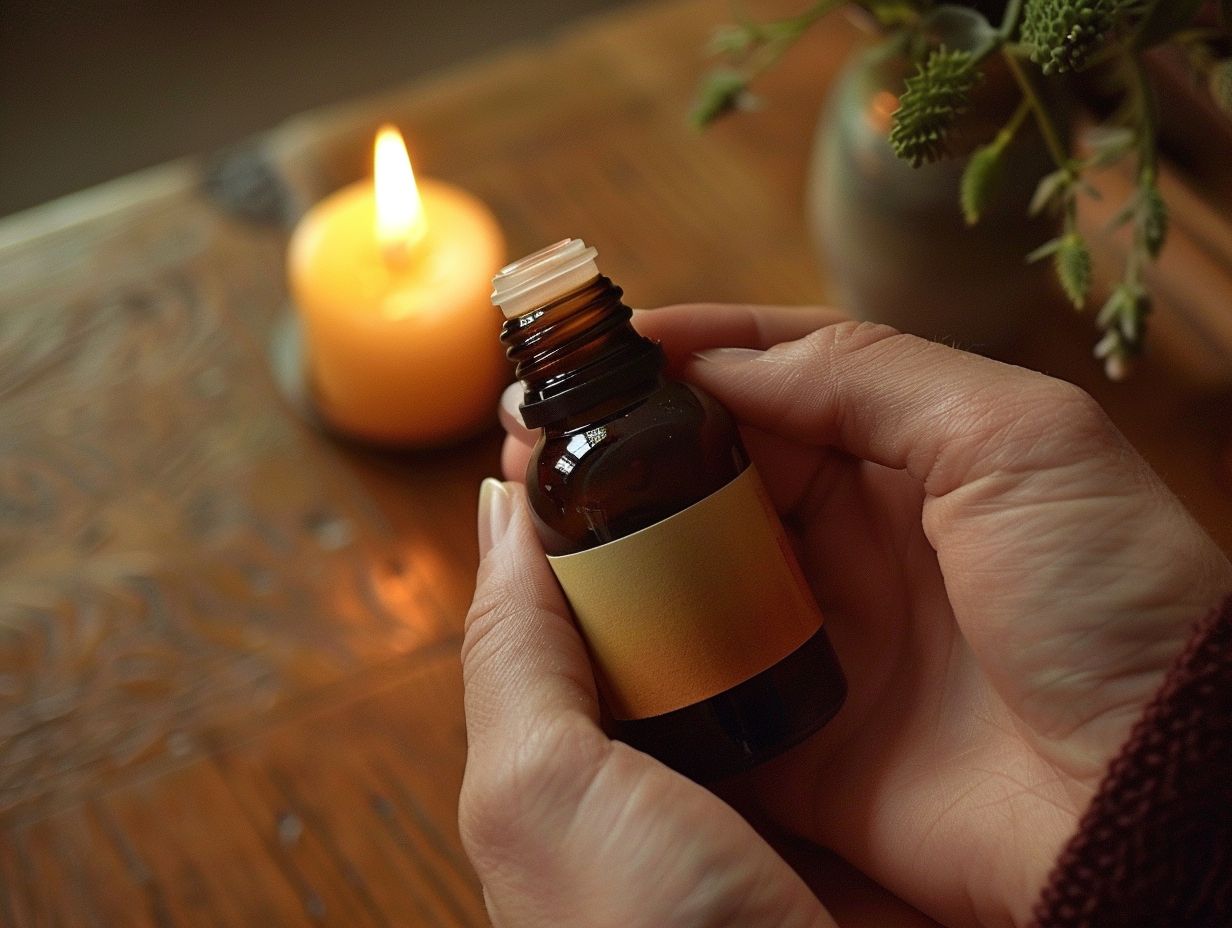
Essential oils can be burned using various methods such as diffusers, candles, and oil burners, each offering unique ways to disperse the aromatic compounds into the air.
Using a diffuser is a popular choice for continuous dispersion as it gently releases the essential oil molecules into the air, creating a calming and soothing environment.
On the other hand, candles not only create a cozy ambiance but also allow the oils to evaporate slowly, filling the room with delightful scents.
Oil burners, on the other hand, use a tealight candle to heat the oil gently, providing an efficient way to diffuse the aroma throughout a space.
Diffusers
Diffusers, whether traditional or electric, are popular for dispersing essential oils by mixing them with water and releasing a fine mist infused with scents like lavender and rosemary.
Traditional diffusers usually involve a ceramic or wooden design, where the essential oils and water blend to create a gentle aroma that fills the room. On the other hand, electric diffusers come in various modern styles, utilizing ultrasonic technology to disperse the oils into the air, providing a more consistent diffusion process. Essential oils like eucalyptus, peppermint, and lemon are commonly used in diffusers for their calming, uplifting, and refreshing properties, making them suitable for different moods and needs.
Candles
Burning essential oil candles, enriched with fragrant essences like bergamot and cinnamon bark, offers a dual benefit of gentle lighting and aromatic ambiance in homes or therapeutic settings.
These candles not only provide a soothing visual effect but also fill the room with calming scents that can help alleviate stress and promote relaxation. The natural fragrances from bergamot and cinnamon bark create a warm and inviting atmosphere, perfect for unwinding after a long day or setting a tranquil mood during meditation or yoga practice.
Incorporating essential oil candles into your daily routine can enhance your sensory experience and elevate your overall well-being in a simple yet effective way.
Incense
Traditional incense sticks infused with essential oils such as basil and eucalyptus have been used for centuries to create a calming atmosphere and promote spiritual practices through aromatic rituals.
The act of burning incense with essential oils holds deep cultural significance across various traditions around the world. The practice of using these aromatic blends dates back to ancient civilizations where it was believed to connect the physical realm with the spiritual world. The soothing scents of basil and eucalyptus known for their calming properties have been specifically chosen for their ability to enhance meditation and promote relaxation.
What Are the Safety Precautions for Burning Essential Oils?
When burning essential oils, it is crucial to prioritize safety and health by following precautions such as proper dilution, ensuring adequate ventilation, and minimizing the risk of skin or eye contact.
One of the key safety measures to consider when using essential oils is the dilution ratio. This is the process of mixing essential oils with a carrier oil to reduce their concentration and minimize the risk of skin irritation or sensitivity. Different oils require different dilution ratios based on their potency and intended use.
Additionally, ventilation is essential to prevent the buildup of fumes, especially in enclosed spaces. Proper ventilation helps to disperse the aroma while reducing the risk of respiratory irritation or adverse reactions.
To avoid accidents or adverse effects, it is advisable to always conduct a patch test before using a new essential oil topically. This involves diluting a small amount of the oil and applying it to a small area of skin to check for any allergic reactions or sensitivities.
Dilution
Properly diluting essential oils with carrier oils or water is essential to reduce skin sensitivity and ensure safe application, particularly when using potent oils like lavender and eucalyptus.
In terms of dilution, selecting the right carrier oil is key. Options such as jojoba, coconut, almond, or olive oil are popular choices due to their skin-nourishing properties.
A common dilution ratio for adults is 2% concentration, which equates to approximately 12 drops of essential oil per ounce of carrier oil. For sensitive skin or facial use, a lower ratio of 1% is recommended.
For different essential oils, ratios may vary depending on their potency and intended use. For instance, citrus oils like lemon or orange typically require lower dilution, while stronger oils such as cinnamon or clove should be diluted at higher ratios to prevent skin irritation.
Proper Ventilation
Ensuring proper ventilation in the room where essential oils are burned is crucial to maintain air quality and prevent the buildup of concentrated scents, promoting a healthier and more comfortable environment with fragrances like basil and bergamot.
The flow of fresh air helps diffuse the aroma evenly and prevents it from becoming overwhelming. Simple strategies such as opening windows or using a fan can significantly improve air circulation in the space. It’s important to avoid using essential oils in enclosed areas without adequate airflow to prevent respiratory irritation. Opting for lighter, refreshing scents like basil and bergamot can uplift the mood without overpowering the room. A well-ventilated room not only disperses the scent effectively but also ensures a pleasant experience for everyone present.
Avoiding Contact with Skin and Eyes
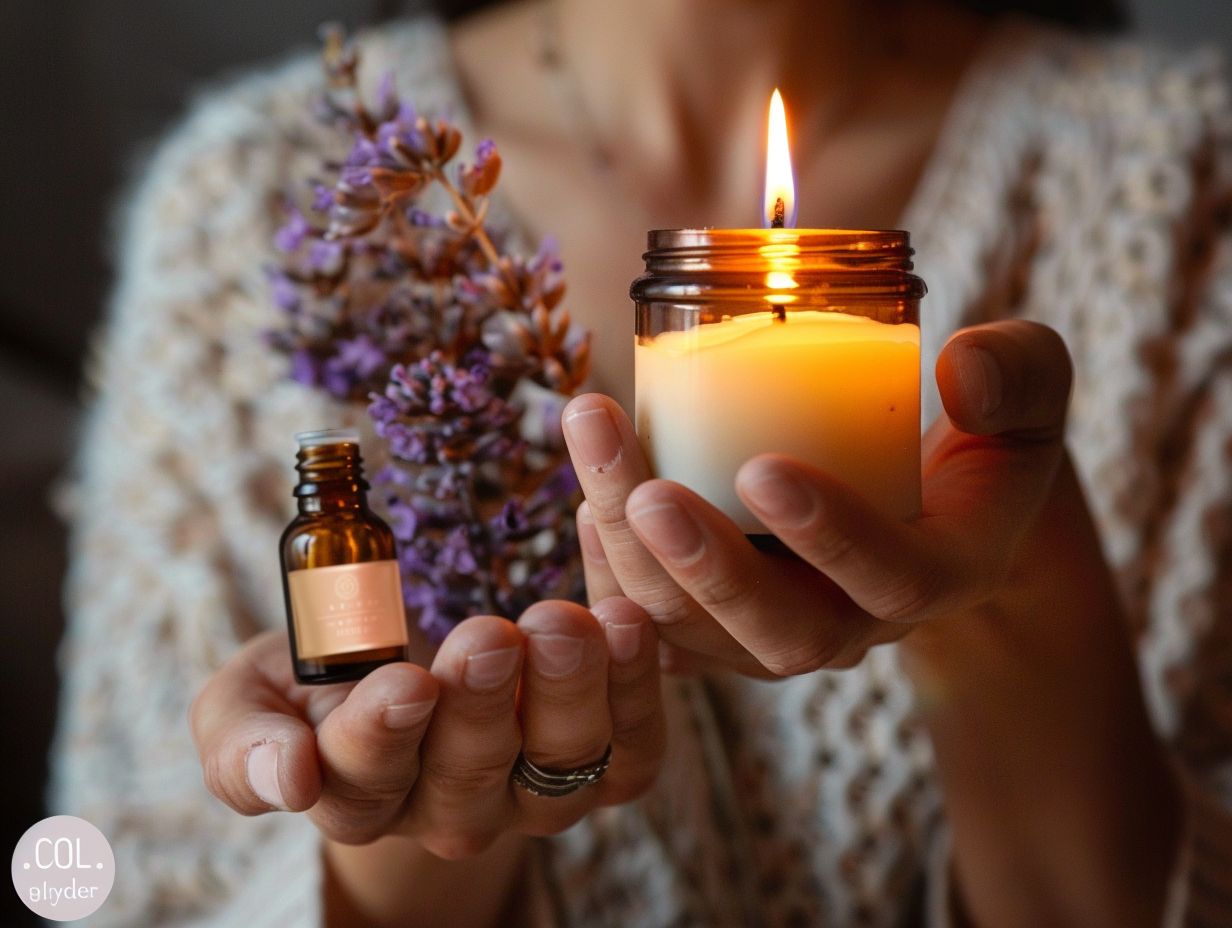
When using essential oils, it is crucial to remember that they are highly concentrated substances that can cause adverse reactions if not used properly. Always dilute essential oils before applying them to the skin to reduce the likelihood of irritation. Store essential oils in dark glass bottles away from direct sunlight and heat to maintain their quality.
If undiluted essential oil comes into contact with your skin or eyes, wash the area with a carrier oil like coconut or olive oil, as water can actually spread the oil and increase essential oil mixing the irritation.
Peppermint oil can be particularly strong and may cause a cooling or tingling sensation on the skin, so extra caution is advised when using this oil.
Can Burning Essential Oils Be Harmful?
While burning essential oils can offer numerous benefits, it is essential to be aware of potential risks such as allergies, sensitivities, and toxicity associated with certain oils, emphasizing the importance of cautious usage.
Allergies to essential oils can manifest as skin irritation, itching, or redness upon contact. If you experience any of these symptoms, discontinue use immediately and seek medical advice. Sensitivities may lead to respiratory issues or headaches, particularly in enclosed spaces with prolonged exposure to strong scents.
Toxicity concerns arise with ingesting certain oils or through excessive inhalation, which can impact the nervous system or cause digestive disturbances. It’s crucial to always dilute oils, follow recommended guidelines, and never ingest them without proper guidance. Stay informed and attentive to any adverse reactions to enjoy the benefits of essential oils safely.
Allergies and Sensitivities
Individuals with allergies or sensitivities should exercise caution when burning essential oils, especially potent varieties like eucalyptus and rosemary, to prevent adverse reactions and maintain respiratory health.
These individuals may experience a range of symptoms when exposed to such oils, including skin irritation, nasal congestion, headaches, and even difficulty breathing.
Therefore, it is crucial for sensitive individuals to perform a patch test before using any new essential oil and to dilute them properly to reduce the risk of irritation.
It is advisable to avoid direct inhalation of concentrated oils or use a flame-friendly diffuser to disperse the scent more gently.
By taking these precautions, individuals can enjoy the benefits of essential oils without putting their health at risk.
Toxicity
Certain essential oils like peppermint and basil can be toxic if ingested or used improperly, underscoring the need for caution, proper dosage, and expert guidance to prevent potential health hazards.
Essential oils contain concentrated plant extracts that can have powerful effects on the body, both positively and negatively. When peppermint or basil oils are ingested in excessive amounts, they can lead to adverse reactions such as nausea, vomiting, and even liver damage.
It is crucial to remember that essential oils are highly potent substances that should always be diluted before use on the skin or inhaled. In the case of ingestion, immediate medical attention must be sought to mitigate any potential toxic effects. Can we heat essential oils for aromatherapy purposes?
Always store essential oils out of reach of children and pets to prevent accidental ingestion, and consult a qualified aromatherapist or healthcare professional for safe and appropriate usage guidelines.
What Are Some Popular Essential Oils to Burn?
Popular essential oils for burning include soothing lavender, invigorating peppermint, refreshing eucalyptus, uplifting lemon, and aromatic rosemary, each offering distinct scents and potential benefits.
One beloved choice, lavender, is well-known for its calming properties, perfect for relaxation and promoting sleep. Peppermint, on the other hand, can help boost energy levels and focus, making it a great option for productivity. Eucalyptus is often used for its respiratory benefits, clearing congestion and providing a refreshing aroma. Lemon brings a bright, citrusy scent that can uplift the mood and create a fresh environment. Lastly, rosemary is known for its stimulating effects, aiding concentration and memory retention.
Lavender
Lavender essential oil is renowned for its relaxing and calming properties, making it a popular choice for burning to promote relaxation and stress relief, often combined with complementary scents like rosemary and eucalyptus.
As the gentle aroma of lavender permeates the air, it has been found to reduce anxiety and improve sleep quality, creating a serene environment for unwinding after a long day.
The aromatic profile of lavender is floral and herbaceous, with a sweet undertone that lingers delicately, enveloping the senses with a sense of tranquility.
When blended with rosemary and eucalyptus, lavender creates a harmonious synergy that enhances mental clarity and uplifts the mood, perfect for enhancing focus during work or study sessions.
Peppermint
Peppermint essential oil offers invigorating and refreshing qualities when burned, ideal for boosting energy, mental focus, and creating an uplifting atmosphere, often paired with complementary scents like lavender and eucalyptus.
When diffused, the crisp, minty aroma of peppermint essential oil can help alleviate feelings of fatigue and enhance alertness. Its stimulating properties make it a popular choice for promoting concentration during work or study sessions.
Combining peppermint oil with lavender can create a harmonious blend that not only uplifts the spirit but also promotes relaxation and stress relief. The addition of eucalyptus can further enhance the invigorating effects, offering a revitalizing experience for both the mind and body.
Eucalyptus
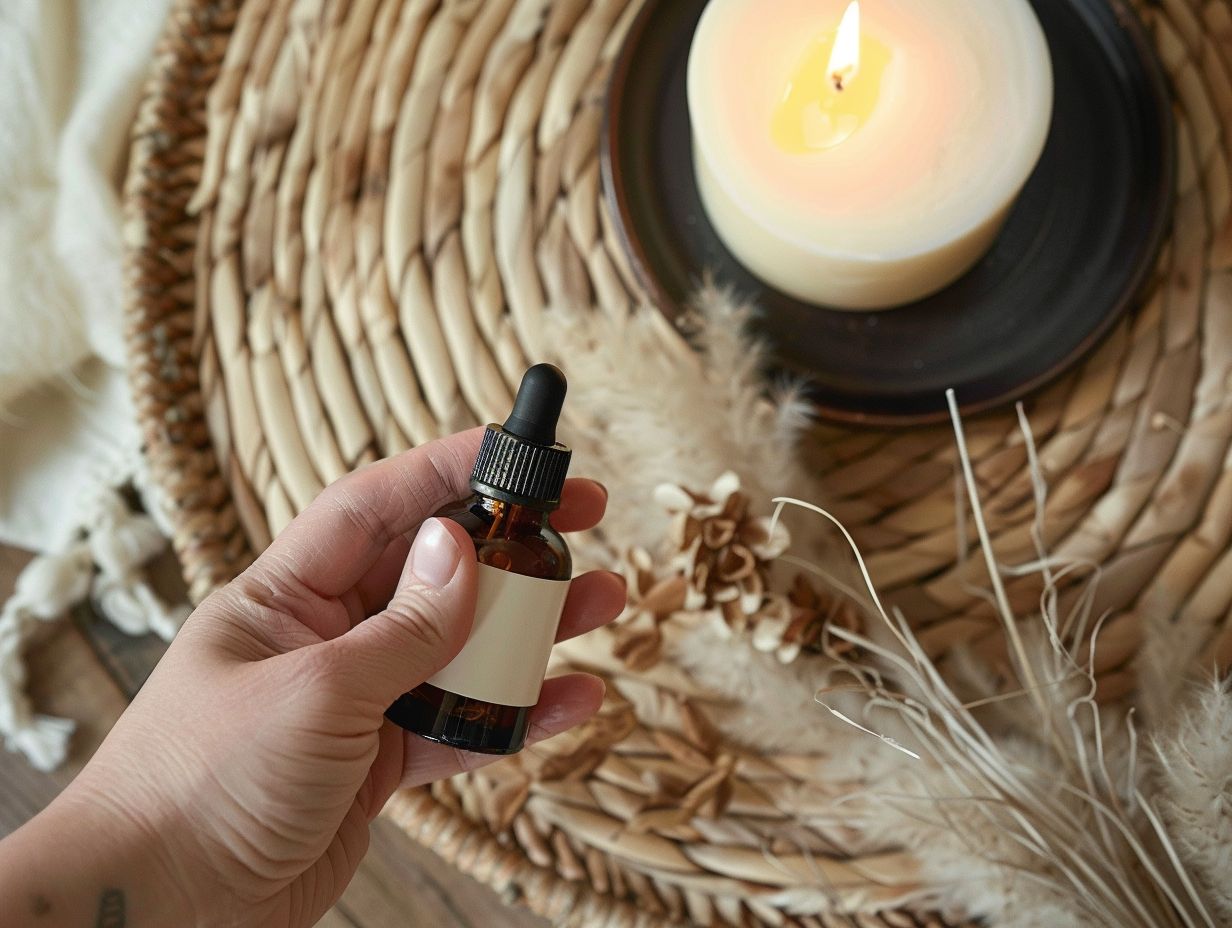
When eucalyptus essential oil is diffused, its antiseptic properties help cleanse the air by eliminating harmful airborne bacteria and viruses, making it an excellent choice for cold and flu season. The invigorating scent of eucalyptus not only uplifts the mood but also helps alleviate mental fatigue and promote mental clarity. Blending it with lavender can enhance its calming effects, while pairing it with peppermint can provide a refreshing boost to your space, creating a harmonious and therapeutic ambiance.
Lemon
Lemon essential oil offers an uplifting and cleansing experience when burned, known for its refreshing scent, mood-boosting effects, and purifying qualities, often combined with scents like lavender and eucalyptus for a revitalizing ambiance.
When the invigorating aroma of burning lemon essential oil fills the air, it not only refreshes the senses but also creates a serene environment that encourages mental clarity and emotional balance. Its purifying properties are renowned for their ability to cleanse the air of impurities and promote a sense of well-being.
This versatile essential oil blends harmoniously with other scents, such as lavender and eucalyptus, to create a synergistic effect that enhances the overall experience of relaxation and rejuvenation.
Rosemary
Rosemary essential oil is valued for its stimulating and clarifying effects when burned, promoting mental clarity, focus, and an energizing environment, often paired with scents like lavender and peppermint for enhanced cognitive function and alertness.
The invigorating aroma of burning rosemary essential oil not only uplifts the spirit, but also aids in memory retention, making it a popular choice for students and professionals seeking improved cognitive performance. The scent of rosemary has been linked to enhanced neural activity in the brain, allowing for sharper focus and increased productivity. Learn more about using essential oils for candles.
Frequently Asked Questions
Can You Burn Essential Oils?
Yes, essential oils can be burned using different methods such as diffusers, candles, and incense burners.
What are the Benefits of Burning Essential Oils?
Burning essential oils can have numerous benefits, including improving mood, promoting relaxation, purifying the air, and even providing relief from certain health conditions.
Are There Any Risks to Burning Essential Oils?
While essential oils are generally safe to burn, there are some risks to be aware of. Always dilute oils properly and never leave a burning flame unattended.
Can Any Essential Oil be Burned?
Not all essential oils are safe to burn, as some may have adverse effects when heated. It’s important to do research and consult with a professional before burning any essential oils.
What is the Best Method for Burning Essential Oils?
The best method for burning essential oils is using a diffuser, as it allows for controlled and safe diffusion of the oils into the air.
Can Burning Essential Oils Replace Traditional Medicine?
No, burning essential oils should not be used as a replacement for traditional medicine. While they can have some therapeutic benefits, they should be used as a supplement to medical treatment, not a substitute.

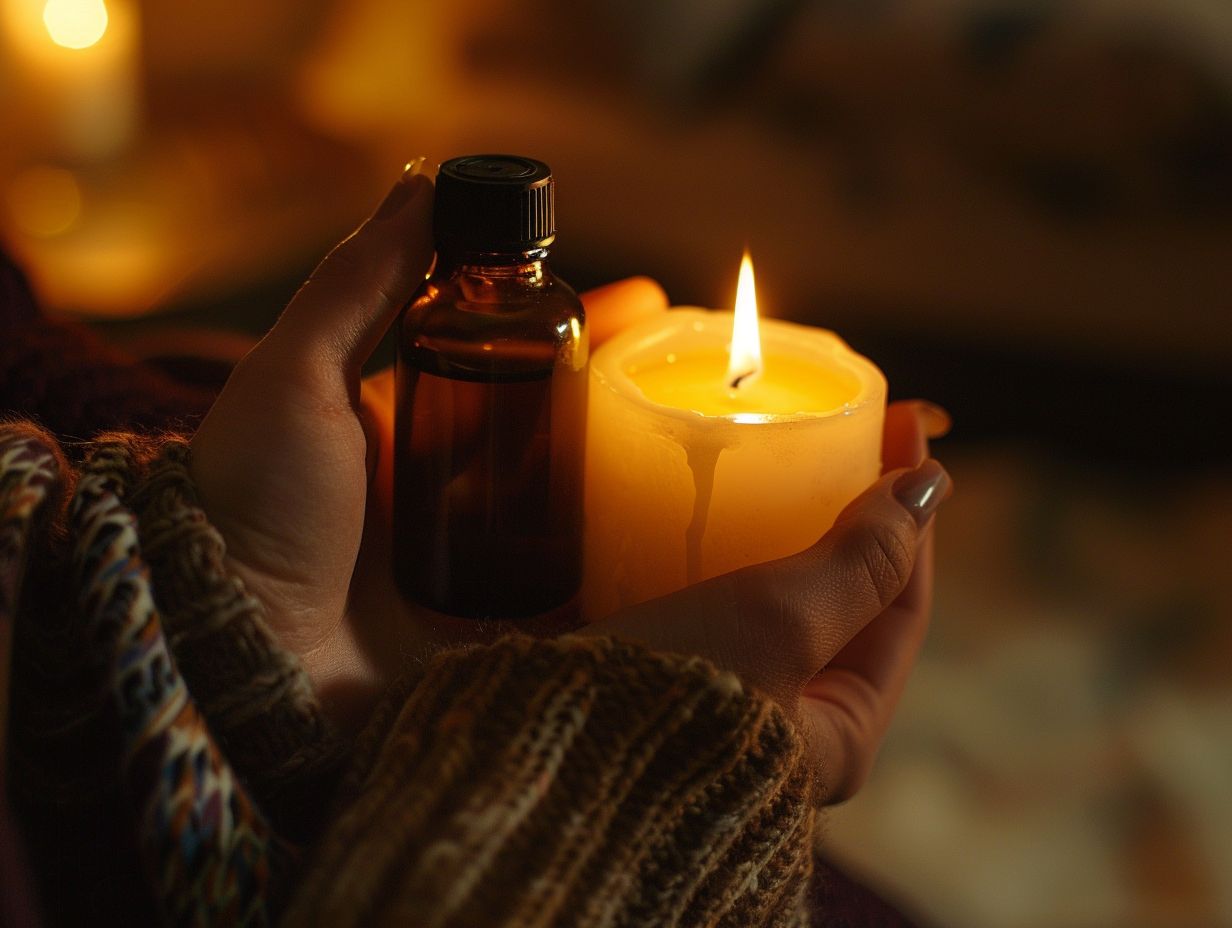
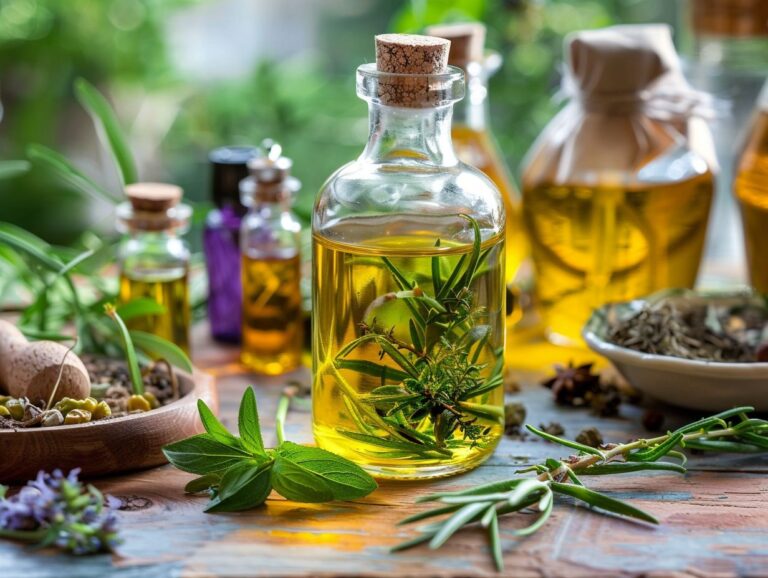
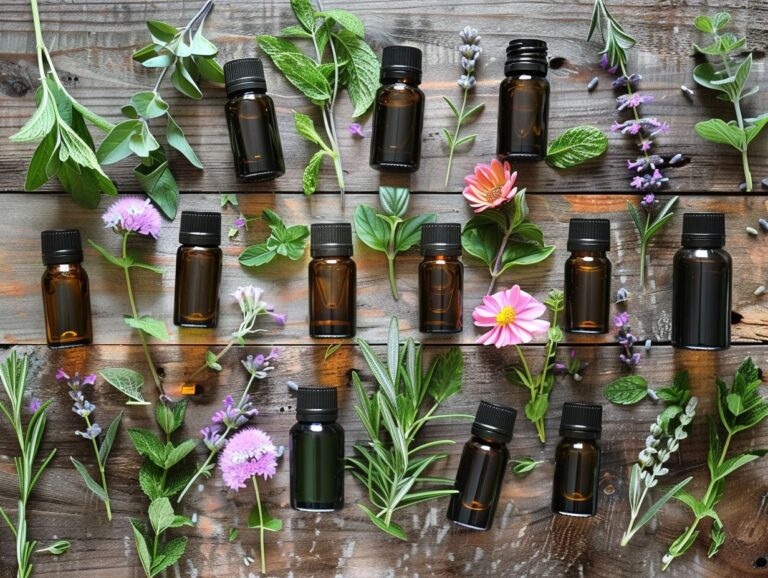
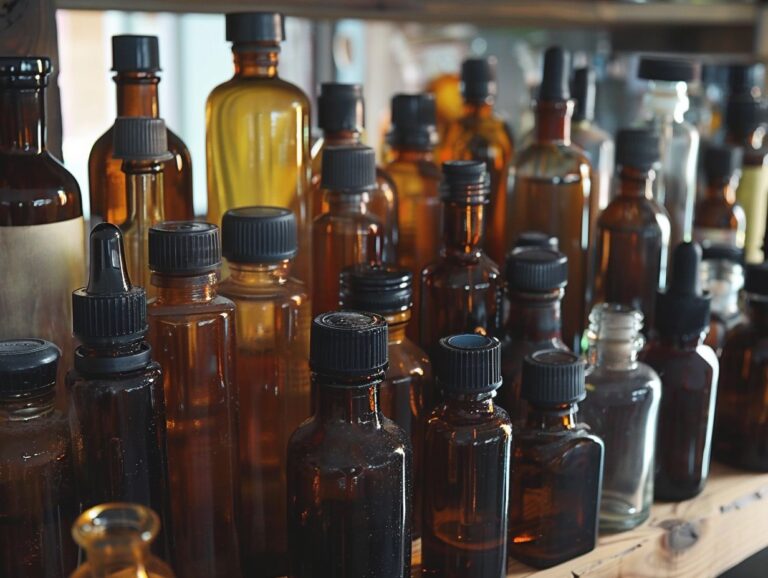



6 Comments